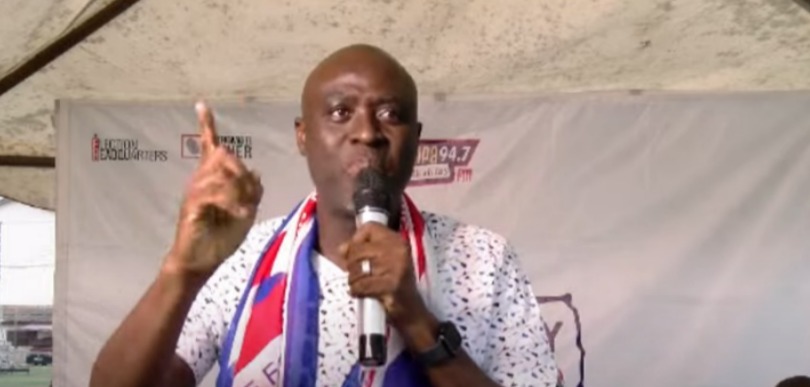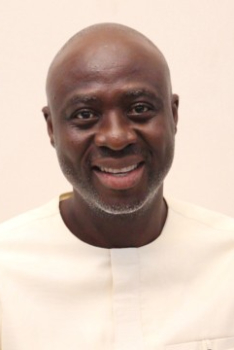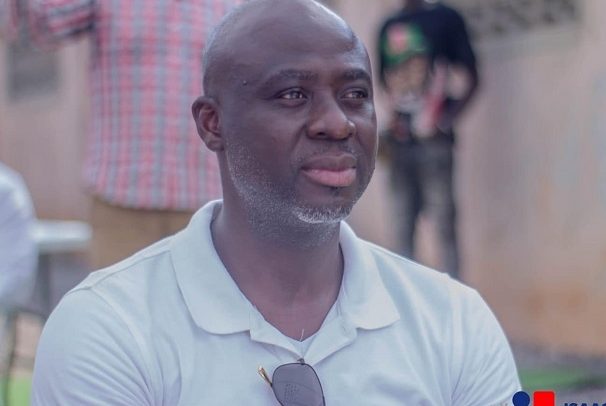Member of Parliament (MP) for Effia, Hon. Isaac Boamah Nyarko, has clarified that parliamentary immunity is designed to facilitate the functionality of elected lawmakers and not to shield criminal conduct.
In response to growing public discourse on the limits of legislative protection, Hon. Nyarko emphasized the importance of maintaining public trust while ensuring MPs retain the capacity to perform their duties unhindered.
“The fundamental issue is that members of parliament are entitled to some immunities. Not immunity from crime committed, but immunities that facilitate our functionality”
Hon. Isaac Boamah Nyarko, MP for Effia
Hon. Nyarko stressed that such protections exist solely to ensure the smooth execution of parliamentary responsibilities. He added that MPs are representatives of the people and should therefore not be subjected to undue interference that hampers their work.
He pointed out that parliamentary standing orders clearly delineate both the immunities and the procedures for invoking them. According to him, the Speaker of Parliament, who serves as the custodian of these immunities, has a mandate to protect members only to the extent that their rights as legislators are not violated.
Addressing recent remarks by the Speaker of Parliament cautioning MPs and asserting his unwillingness to shield anyone involved in criminal activity, Hon. Nyarko urged caution in public communication to avoid misinterpretation.

“At times if we are not careful, it also sends a signal to the public to suggest that there are members of parliament who are there doing things that are untoward or are flouting state regulations and so he’s out here to speak to us to comply and all”
Hon. Isaac Boamah Nyarko, MP for Effia
While agreeing that no MP should be above the law, he agreed that the Speaker’s responsibility is limited to protecting members from unlawful interference, not shielding them from justice.
“He is not supposed to shield any crime. I don’t think that is the role of the speaker. The speaker is supposed to protect only to the extent that the person’s right as a member of parliament is not impeached”
Hon. Isaac Boamah Nyarko, MP for Effia
Legal Accountability
Hon. Nyarko also reflected on his own conduct, sharing that his status as a parliamentarian has influenced his personal approach to conflict resolution and public behavior.
“I had my own way of handling matters but since I became a member of parliament, I’ve tried as much as possible to be much more mindful – so that nobody would have an issue with me that will warrant the issue being brought to the public space or bringing an issue against me to the speaker of parliament”
Hon. Isaac Boamah Nyarko, MP for Effia

He called on all MPs to uphold their image as “role models” and be conscious of their behavior both inside and outside Parliament. According to him, the responsibility of being a lawmaker includes respecting the very laws they help create. “Our conduct within and without (parliament) should be of high level”
Hon. Nyarko strongly condemned the tendency of some lawmakers to avoid law enforcement summons under the pretext of parliamentary duties. He urged MPs to honor legal invitations without hiding behind legislative immunity.
“Whether you come from parliament or you go to parliament, if there’s an invitation on your head, you will appear. So make yourself available, appear, go, and make your case. If they want to prosecute you, make yourself available for prosecution”
Hon. Isaac Boamah Nyarko, MP for Effia
However, he stressed that legal accountability should be consistent across the political divide. He cautioned against selective application of justice and advised that rules established today must apply equally to all parties in the future.
“And our colleagues on the other side should also know that once we chart that course, in future, we should all abide by the same rules. You don’t set a rule today and tomorrow it becomes another issue”
Hon. Isaac Boamah Nyarko, MP for Effia
READ MORE: NPA Boss Advocates Africa-Led Gas Monetization Strategy























